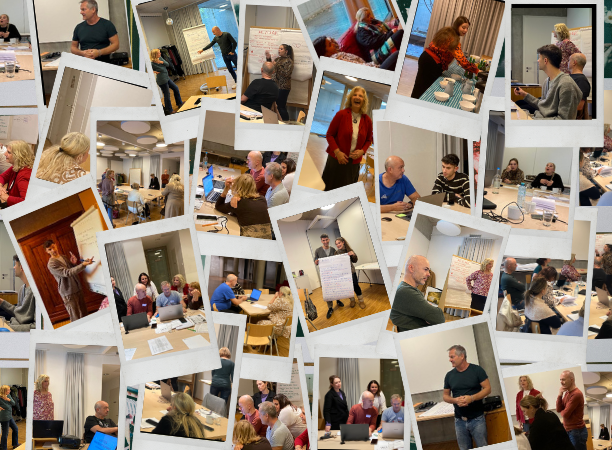Together, we built ideas that will shape the future!

In November 2024, Vienna served as the setting for the first Transnational Meeting of the coACTION project, an ambitious effort aimed at empowering democracy in primary schools through an integrated and participatory approach. During this event, representatives from AETA, Blick, Jaitek, Paragon, and PBOe gathered to define, refine, and agree on the processes and deliverables that will enable the sustainable implementation of democratic measures within the school environment.
The coACTION project focuses on developing a standard process that ensures quality in the adoption of democratic measures, taking into account the entire school community. In this context, various tools were proposed, including the Quality Assurance Guide, designed to describe the process in detail and contextualize it for each country; the Year of Democracy Diary, which aims to record milestones and reflections throughout the implementation; and the Democratic Empowerment Platform (DEMP). The latter is envisioned as an integrated digital space that, through the interconnection of tools such as the Sensor and the Treasury, will offer different levels of access to schools and individuals, adapting to the specific needs of each group.
The meeting’s agenda was both intensive and dynamic, beginning with team-building activities that facilitated mutual acquaintance among the participants. Throughout the first day, fundamental topics were addressed, such as defining the standard process and evaluating the viability of using the Diary as an integral description of this process. Participants debated whether this resource should operate independently or be complemented by an additional descriptive area, and they established differentiated criteria for accessing the DEMP platform, determining that schools would have full access while individual users, such as teachers and parents, would have more limited access.

Furthermore, the need to develop a shared terminology and a common taxonomy was emphasized in order to coherently align the Sensor and the Treasury. This interconnection is crucial to ensuring that both tools accurately reflect the competencies necessary for fostering a democratic culture, thereby facilitating the evaluation and adaptation of measures to suit the particularities of each school context. During the meeting, aspects related to the dissemination and management of the project were also discussed, ranging from the preparation of progress reports and the planning of periodic meetings to the definition of communication strategies that would enhance the project's visibility.

The second day was devoted to management and monitoring aspects, during which control mechanisms were reviewed through the use of GANTT charts and semi-annual reporting plans, as well as an impact evaluation system designed to measure the results achieved. Participants agreed that these instruments will be essential in ensuring transparent and efficient management, which in turn will contribute to the consolidation of democratic measures in the schools of the involved countries.
The transnational meeting not only established the operational foundations of the project but also strengthened the collaborative spirit among the partners. The exchange of ideas and group activities enabled the identification of key elements essential for the project's success, highlighting the importance of active participation, diversity, and the interconnection among all members of the school community.

Let’s keep building a more inclusive and democratic future!

